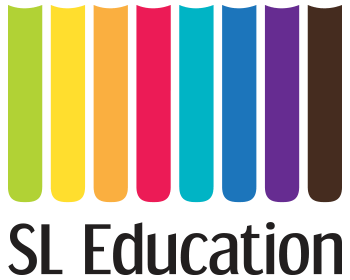
Home >
Training >
Professional Development >
Secondary Courses >
Concept-Based Courses >
Core Courses
Core Courses
Secondary Courses
The importance of professional development for teachers cannot be overstated. Constant changes to the curriculum, the evolution of technology and the varying needs of pupils have gradually transformed the role of the teacher to that of a facilitator.
Teachers from all over the world can look forward to a variety of professional development courses conducted by our renowned trainers well-catered to your needs. Be it a half-day workshop or a five-day course, you will be exposed to a variety of hands-on activities and ideas to enhance your classroom teaching and to support all aspects of your teaching. Keep up to date with the latest teaching trends and pedagogies.
Concept-Based CoursesCore Courses
SMC1001: Key Learning Theories for the Teaching and Learning of Secondary Mathematics
How do we influence the way teachers teach and students learn Mathematics? This course aims to highlight five
key learning theories which will help shape classroom practices and enable children to build strong mathematical
conceptual understanding and process skills. Various instructional approaches and strategies will be discussed
using different topics across grade levels will be discussed using different topics across grade levels.
SMC1002: Effective Lesson Planning for High Quality Learning
An effective lesson which ensures high-quality learning is the result of active lesson planning. In this course,
participants will learn how to define an ‘effective lesson’, use four critical questions to guide active lesson
planning, and anticipate children’s varied responses and brainstorm differentiated strategies for both advanced
and struggling learners in Mathematics.
SMC1003: Learning Mathematics through Reasoning and Communication
This course focuses on mathematical reasoning and communication skills which are part of the highly-valued 21st
century competencies. Participants will be able to learn instructional strategies and use carefully constructed
learning tasks to hone these skills in classroom teaching. Implications for educators to promote the development
of such 21st century competencies at school-wide level will also be discussed.
SMC1004: Using Heuristics to Solve Challenging Problems
Do your pupils struggle with solving challenging problems? Do you wonder how we can teach problem-solving
processes more effectively? This course focuses on using effective scaffolding questions to diagnose pupils’
difficulties in problem solving and coach them to use various heuristics to tackle Mathematics problems.
SMC1005: Use of Mathematical Modelling in Problem Solving
The mathematical modelling process involves the formulation and improvement of a mathematical model to
represent and solve real-world problems. Participants will learn how to incorporate mathematical modelling in
the Mathematics curriculum to allow pupils to utilise higher order thinking skills to solve problems in real-world
contexts.
SMC1006: Summative Assessment - An Integral Component of Learning and Teaching
How do we design a valid and balanced test to provide an accurate measure of pupils’ mastery of knowledge,
understanding of concepts and application of skills? Are we able to measure the efficiency of the curriculum and
instructional strategies in the achievement of intended learning goals? This course aims to help participants
design a table of specifications, create questions with varying cognitive demands and develop answer keys and
marking schemes.

